The ‘old friends’ had grown to fourteen by the time they gathered around the grave in Brompton Cemetery. Three civil service people from the Stationery Office who Rose had never seen before stood rigidly at one end with their furled umbrellas in front of them like reversed rifles. The Irish couple who lived two doors away in Oldfield Gardens and never missed a thing had turned up, thoughtfully with only two of their six children. Also, wearing black armbands, one of the barmen and two regulars from The Orange, where Barry used to drink. Then the quartet from the RAF, stouter and redder in the face than they’d looked in 1940 and now without a moustache between them.
The family group consisted of Barry’s stepsister Daphne and her obnoxious husband Ronald, Rose’s parents and Aunt Joan. And Rose herself.
Her father had offered to read the service. She’d said at the risk of hurting him that she would find the whole thing too distressing. She preferred to have the words spoken by a priest she didn’t know. Daddy nodded and said he understood. Rose hoped to God that he didn’t and never would.
Even then it was an ordeal going through the motions of lament with them beside her and everyone watching for evidence of grief from the wretched widow. She kept her head bowed and bit her lip and dabbed her face with a hankie. They were genuine tears. The ritual hardly touched her, but she wept for all the lies she would be forced to tell before the afternoon was out.
They all said afterwards how splendidly brave she had been.
Her mother and aunt had helped her prepare some food at the house for after the funeral. Spam sandwiches mostly, plates of digestive biscuits and slabs of trench cake. The cake was her mother’s contribution, from a First World War recipe that the Ministry of Food had disinterred for the Second. It was made without eggs and Mother rashly announced that the original trench cakes had kept for three months on the Western Front. No one enquired why they hadn’t been eaten in all that time, but when she offered to pass the recipe on there was an embarrassing silence. Only the Irish children tried any.
Much against her desire, Rose remained the centre of attention. Offers of support were showered on her.
‘I want you to know, my dear, that we at the Stationery Office wouldn’t want you to get into difficulties. If there’s anything that needs attention, my name is Gascoigne and this is McGill and our young colleague here is Tremlett. Remember, won’t you? Anything under the sun.’
She had an engaging picture of Gascoigne, McGill and Tremlett under the sun, bare-chested on the roof replacing the war-damaged tiles.
‘So kind.’
‘Not at all. Barry was held in the highest esteem at the depot. We shall not look upon his like again, as the Bard expressed it. Now that we know each other...’
The bonhomie was excessive, like Victory Day all over again. Why am I so cynical? Rose asked the kettle as she filled it.
As for the RAF mourners, they had their own way of combating depression. They took turns going out to the car to top up with something from a bottle. Out of respect for the cloth, as they put it (meaning Daddy, who could see very well what was going on, and wouldn’t have been averse to a nip), they used teacups and let it be known that they were drinking Russian tea.
‘Never would have guessed your Pop was a parson, Rose. You should have told us, you know.’
‘Why?’
‘Freddie here would have moderated his language.’
‘Did he say something? I didn’t hear him.’
‘Lord, no. He’s been the soul of discretion today. I’m talking about the war. In the ops room. The things you heard must have made your toes curl.’
Rose shook her head. ‘Let’s make no bones about it, we were all living on our nerves. I said a few strong words myself when I was pressed.’
‘My dear, I never heard them pass your lips. But you’re right about the pressures. Say what you like about our flying skills, we needed the luck of Old Nick to survive. Dear old Barry, rest his soul, was in the thick of it and came through triumphant every blessed time. Even when he got in trouble he limped back somehow, hours late, with that beautiful fatuous grin on his face. He was indestructible.’
‘So were you, as it turned out.’
‘Yes, but we could all name plenty of good lads who didn’t make it home. If there’s any sense in it all, we’re bound to ask why we were spared.’
‘Rex, I’d better get round with the tea before it gets cold.’
‘Just a moment, dear. I’m shockingly hamfisted with words, I know. Always was. What I’m getting at is this. Somehow we knew Barry would always come back. He gave you that sense of living a charmed life. So when I was told he’d fallen off a railway platform, I couldn’t believe my ears. The Piccadilly Line? Dear old Barry? That’s not like him, I said, not like him at all.’
‘Accidents happen all the time.’
‘Not to the likes of Barry. To tell the truth, I still haven’t taken it in properly. Standing there in the cemetery this afternoon I kept thinking, this isn’t right. Any minute I’m going to feel a tap on my shoulder and I’ll turn round and it’ll be old Barry in his flying kit having a bloody good laugh at us.’
One of the others, Peter Bliss, had been getting restless. ‘Put a sock in it, Rex.’
‘What’s up?’
‘You’re talking baloney.’
‘Pardon me, old son, but it’s a fact. Barry always came back. Always.’
‘This is hardly the time and place to go on about it.’
Rose gave Bliss a nod of thanks and moved off to fill the teapot again. She found her mother in the kitchen washing plates with Aunt Joan. An opportunity, Mummy had decided, for a heart-to-heart.
‘Now that it’s over, we want you to come home with us for at least a few weeks, my pet. You look so dreadful, I can hardly believe it’s my own daughter.’
‘Mummy, I appreciate the thought.’
‘It’s more than a thought, dear. I absolutely insist, and so does your father.’
‘I know you mean well, but it’s out of the question. There’s too much to be done here.’
‘Nothing that can’t wait. I couldn’t possibly go away tonight and leave you alone in this dreadful... I mean, in this house with... with so many memories.’
Aunt Joan came tactfully to her sister’s aid. ‘It was that face on the hoarding across the road that upset us. So depressing for you to look out on all the time.’
‘The widow? I’ve got used to her now. She doesn’t bother me in the least. Really.’
‘As if we haven’t all seen enough horrors since the war ended.’
‘I’ll manage perfectly well by myself, Mummy.’
‘It isn’t as if you have friends you can turn to. I don’t mind telling you I don’t take to those Irish people.’
‘They’re neighbours. I’m not without friends, believe me.’
‘Friends? Up here in London? Who, for instance?’
‘Um, people you wouldn’t know. Ex-service.’
She was too late to bite back the last words. Her mother gave her a sharp look. God, how much longer would the kettle take? She tried turning the gas up. It was already fully on.
The cross-questioning began in earnest. ‘Air Force people then?’
‘Yes.’
‘Ex-service, you said. You don’t mean the men in the other room?’
‘No.’
‘WAAFs?’
‘You wouldn’t know them, Mummy.’
‘I didn’t see any WAAFs here today.’
‘They couldn’t manage it. Would you be a dear and put out some more biscuits? We’re about to run out in the other room.’
‘There’s plenty of cake left. They’ve hardly touched it. Do you really want to use up all the biscuits? All right, if that’s what you want. We’ll talk about this again, dear. I’m far from satisfied.’
Читать дальше
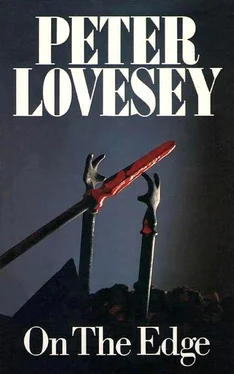
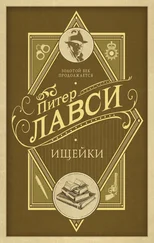
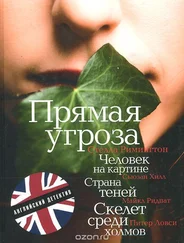




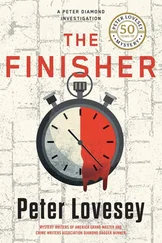
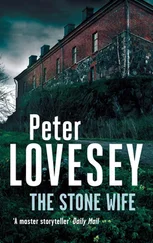
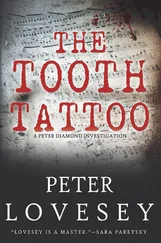
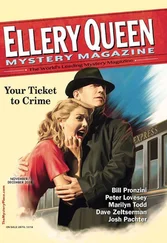
![Питер Ловси - Do Not Exceed the Stated Dose [Stories]](/books/437200/piter-lovsi-do-not-exceed-the-stated-dose-stories-thumb.webp)
